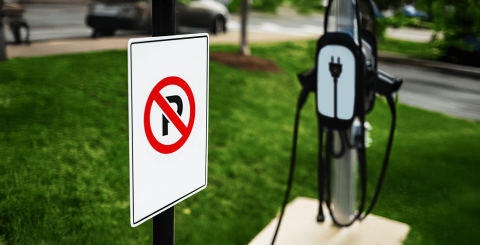What is a car insurance deductible?

Insurance terminology can be confusing at times, with all its different nuances and specific terms. One of the most important concepts to understand is the “deductible.” Why? Because you have to choose a deductible when you take out a car insurance policy. You need to consider this decision carefully because it influences the price of your insurance and your coverage in the event of a claim.
To help you make an informed decision, we’ll use three key questions to explain exactly what a car insurance deductible is and what the most important considerations are.
What exactly is a deductible?
A deductible is the amount that you are responsible for paying in the event of a claim. It applies to any insurance policy and varies depending on the contract. This may seem quite simple on the surface, but it’s not something you should take lightly. The deductible you choose has a real and potentially significant impact on your life!
The amount of your deductible influences the cost of your insurance. Essentially, the higher your deductible, the lower your insurance premiums, and vice versa. But if you do file a claim you will have to pay the amount of your deductible. You get it—if there were no deductibles, insurance premiums would be higher.
How do I decide what deductible to choose?
So how do you make the right choice? There are a number of factors to take into account. The most important thing is to choose the best deductible for your particular situation.
Let’s take an example: you make a claim and the cost to repair your vehicle is $3,000. If your deductible is $500, you pay $500 and your insurer pays out $2,500 as your benefit to cover the difference.
On the other hand, if you don’t make any claims for several years, you may save more than the amount of the deductible that you would have to pay if you had an accident.
It’s up to you, depending on your budget and your risk tolerance!
What you need to ask yourself is whether you have the financial capacity to pay a given deductible. If so, a higher deductible is a surefire way to save money on your insurance premium. But don’t forget, accidents DO happen! And if one does, you’ll have to pay promptly.
Who do I pay my deductible to in the event of a claim?
Practically speaking, the deductible is taken off the settlement agreed upon with your insurer when you make an insurance claim. For example, if a mechanic repairs your vehicle for $3,000 and your deductible is $500, you must pay your mechanic the $500 when picking up your vehicle. Your insurer will take care of the rest.
If your vehicle is a total loss and your insurer reimburses you directly, the deductible will be taken off that amount.
Total loss: $15,000
Deductible: $500
Benefit: $14,500
Your insurer will pay out $14,500.
In some cases, you may be exempted from paying a deductible. It’s true! For example, if you are in an accident in Québec involving another identified vehicle and you are not at fault, you won’t have to pay the deductible. You may also be exempted if your vehicle is damaged by fire or lightning.
Now that you’re ready to choose a deductible for your car insurance, remember these two words: calculate and compare. That’s the winning combination! Work up different scenarios and ask for insurance quotes with different deductibles. That way you can find your happy medium.
Good luck!



